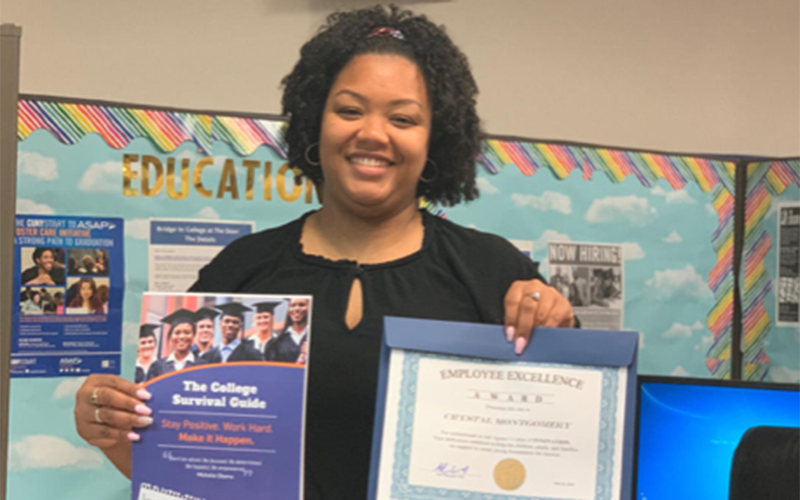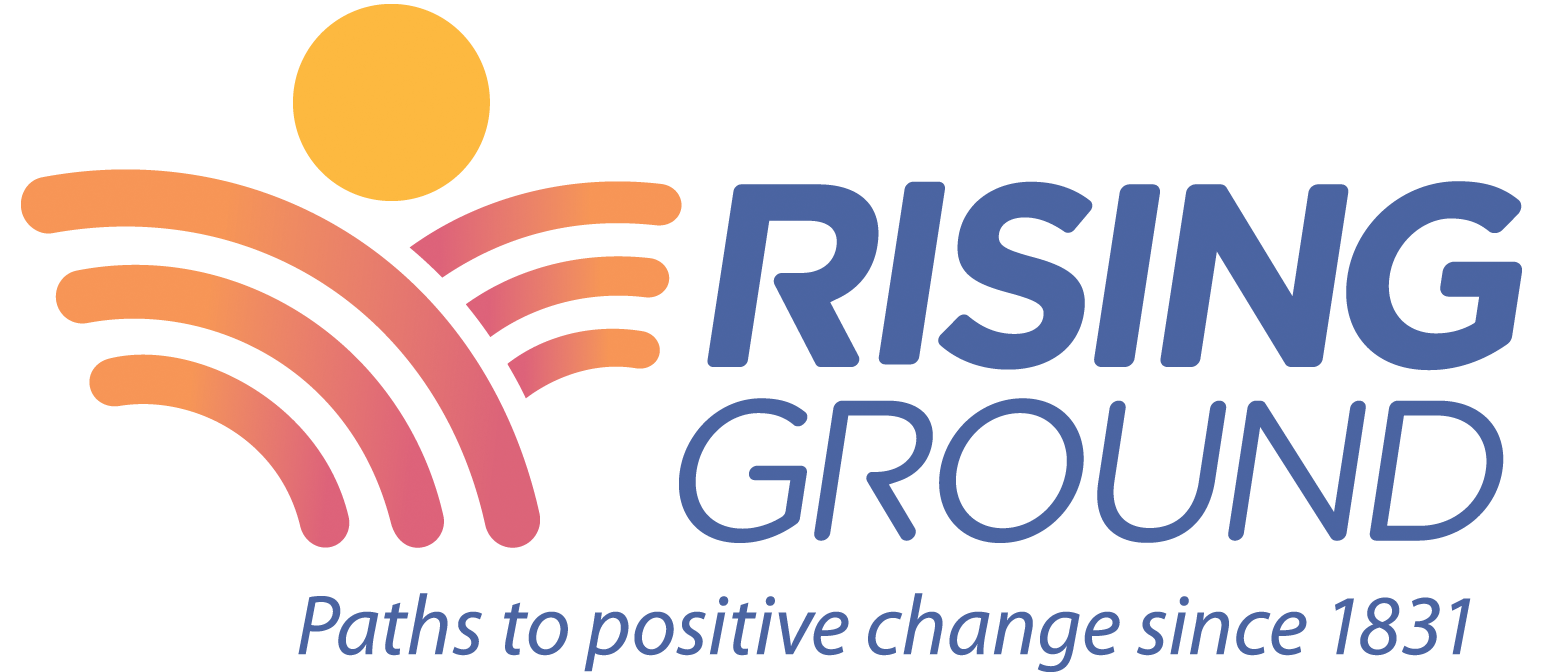News

A ‘College Survival Guide’ for Youth in Foster Care — Compiled By Someone Who Lived It
“With every youth I encounter, I see a little piece of myself,” says Crystal Montgomery, 26, a former child in Family Foster Care and former Youth Development Specialist at Rising Ground. Crystal is a role model. She wants teens and young adults to see themselves in her achievements, which are many. She put herself through SUNY-Buffalo, earned a Master’s degree in Social Work from Columbia University, and she’s participating in the prestigious Congressional Research Institute for Social Work and Policy political boot camp In Washington, D.C., this summer.
“Although I have struggled and experienced tremendous hardships, I’ve still found a way to turn my life into something positive – something I can take pride in,” Crystal explains.
Because she found being a college student particularly challenging, she says she hopes to make it easier for others who want to follow her path. To that end, she’s compiled “The College Survival Guide” written expressly for college-bound and college-enrolled youth in care.
“Youth in care don’t have a roadmap on how to succeed in college; I didn’t have one,” she says, adding that she tailored “The College Survival Guide” to specifically address the type of things she had to find out on her own, sometimes the hard way.
“I struggled a lot in my transition from high school to college,” she explains. “I was getting good grades, but something changed when I got to college. I didn’t know how to manage my time or whom to study with or the proper way to take notes in class.” She failed one course and got C’s and D’s in several others during her first year at Buffalo. “I had to develop discipline and structure to make sure I got the grades that I wanted.”
Therefore, “The College Survival Guide” is filled with tips on studying and time management. It also explains the financial resources available to students currently or formerly in foster care.
“My first year, I messed up the financial aid form, and I had to take out a $20,000 loan,” she said. It wasn’t until her second year that she found out about other resources, such as a federal education training voucher (ETV), available to her as a former youth in care.
The “College Survival Guide” encourages students to speak to their advisors regularly and to see if they’re taking the right classes, and to avail themselves of free college resources, such as writing and math centers, as well as tutoring. It even advises students on making sure they present a professional image of themselves on social media, providing specific social media dos and don’ts.
In 2015, Crystal received her BA in psychology with a minor concentration in history from SUNY-Buffalo. She subsequently was hired as a Youth Development Specialist at Edwin Gould, now part of Rising Ground, where she had spent eight years in foster care. This past May, she received her MSW from Columbia University School of Social Work.
Even though Crystal has left Rising Ground and moved on to build a career focused on research and foster care policy, she remains an inspiration, someone who’s carved out a path for others to follow.
“I want [youth] to have a positive image of what life after foster care can be,” she said as keynote speaker at the Rising Ground Family Foster Care Graduation ceremony on June 28. “I want them to see that it is possible to overcome the trauma and be successful. I want them to dream their biggest dream and work hard to make it come true.”
Words to live by.
